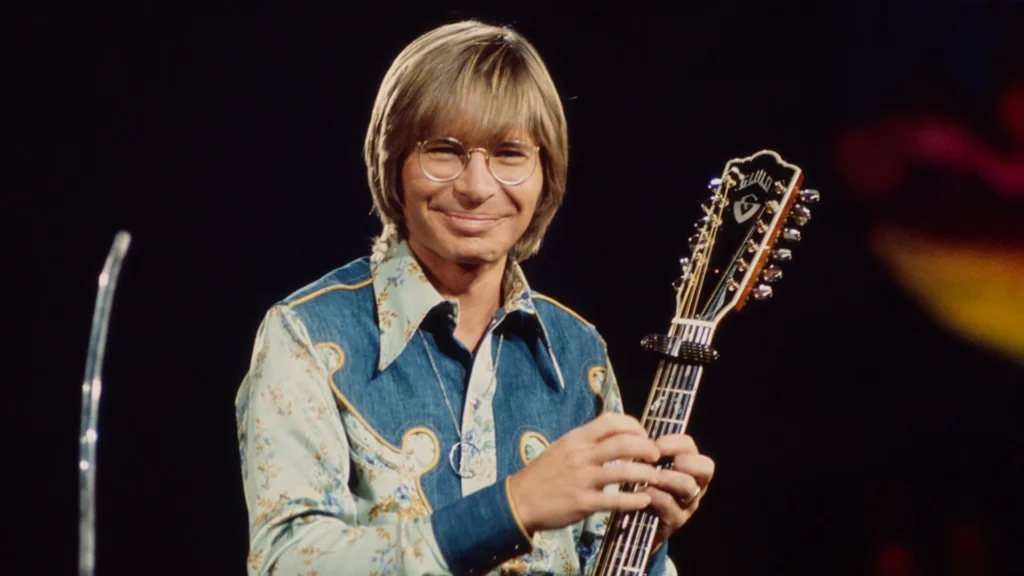
A Gentle Testament to the Power of Music, Memory, and the Instruments That Shape Our Souls
“This Old Guitar” by John Denver, nestled into the fabric of his 1974 album Back Home Again, is not merely a song—it is a meditation. While it never charted as a standalone single, its significance within Denver’s oeuvre and the hearts of his devoted listeners is immeasurable. Released at the peak of Denver’s commercial success, with Back Home Again reaching No. 1 on the Billboard 200 and yielding the Grammy-winning single “Annie’s Song,” “This Old Guitar” offers a quieter, more introspective moment—a gentle epilogue that distills the spirit of an artist deeply entwined with his instrument.
Written by Denver himself, “This Old Guitar” is as much an ode as it is a benediction. It is the kind of song that lives beyond the charts, resting instead in the quiet places where memory and music meet. At just under two minutes long, it feels like a whispered confession, a final word before the curtain closes. And yet within its modest frame lies an entire autobiography rendered in six strings and soft-spoken gratitude.
The song opens with disarming simplicity—“This old guitar taught me to sing a love song”—yet beneath that gentle phrasing lies an emotional resonance that lingers long after the final chord fades. For Denver, this “old guitar” was not just wood and wire—it was companion, confessor, passport, and pen. It carried him through coffeehouse corners in smoky folk clubs, across sprawling arenas filled with adoring fans, and into countless living rooms via radio waves and turntables. It witnessed his rise from struggling musician to one of America’s most beloved troubadours.
The lyrical structure of “This Old Guitar” mirrors Denver’s hallmark sincerity—plainspoken yet poetic. He does not embellish; he reveals. The instrument becomes a metaphor for continuity in a world of fleeting fame and shifting circumstances. “To brighten up some day,” he sings—not to change the world, but simply to bring light where there was none. It is this humility that renders the song so poignant. In contrast to more bombastic declarations of artistic purpose, Denver quietly honors the muse itself—the tool through which his voice found shape.
Musically, the track is sparse—fingerpicked acoustic guitar backed by minimal accompaniment—a choice that reinforces its intimacy. The recording feels as though we are seated beside him on a back porch at twilight, listening not to performance but to memory being lived out in real time.
Over time, “This Old Guitar” has become emblematic not only of Denver’s deep bond with his craft but also of a broader era in American songwriting—a time when authenticity was currency and songs were sacred vessels for truth. In concerts near the end of his life, Denver would often introduce this piece with palpable reverence, speaking of the very guitar that inspired it—a 1910 Gibson given to him by an old friend, which had been with him since before fame’s arrival.
In honoring this humble instrument, John Denver created a timeless hymn to all that music can be: solace, sanctuary, storytelling. “This Old Guitar” remains a profound reminder that sometimes the most enduring songs are not those that top charts or break records—but those that speak softly and carry our lives within them.